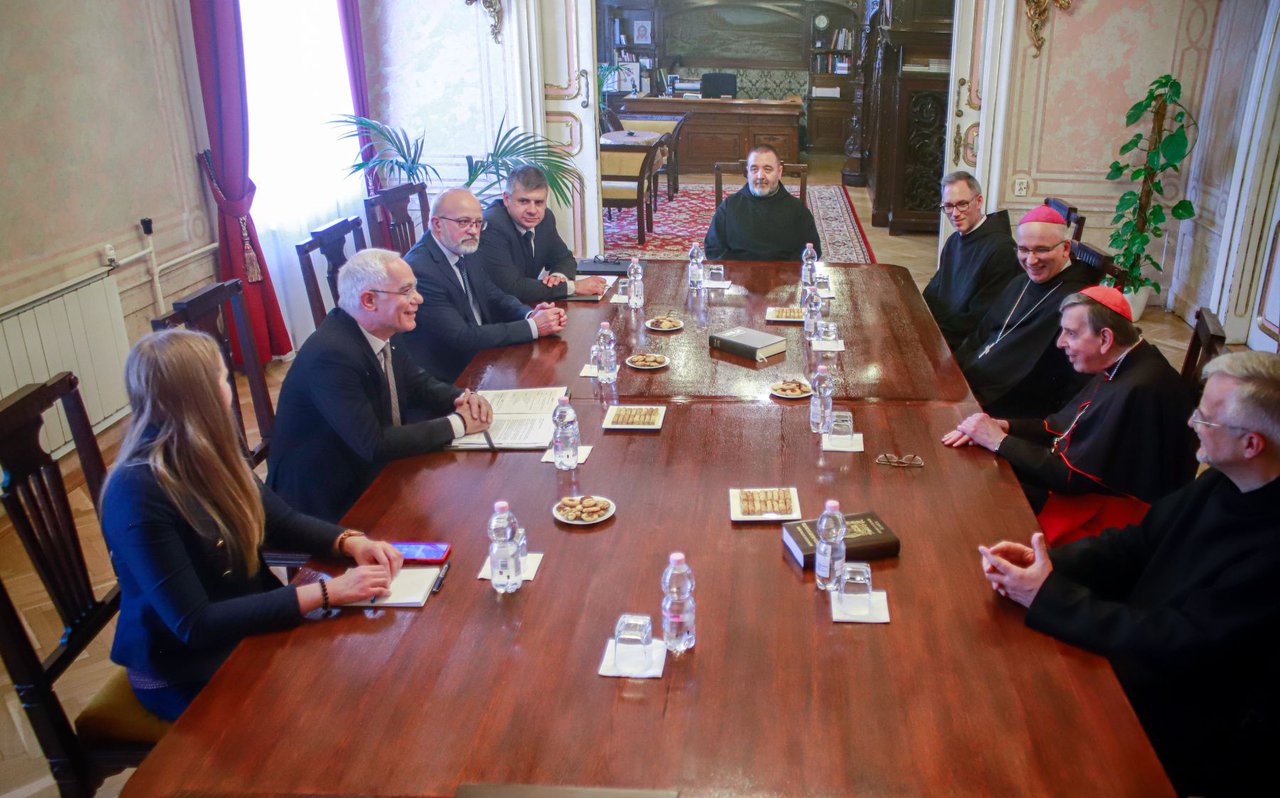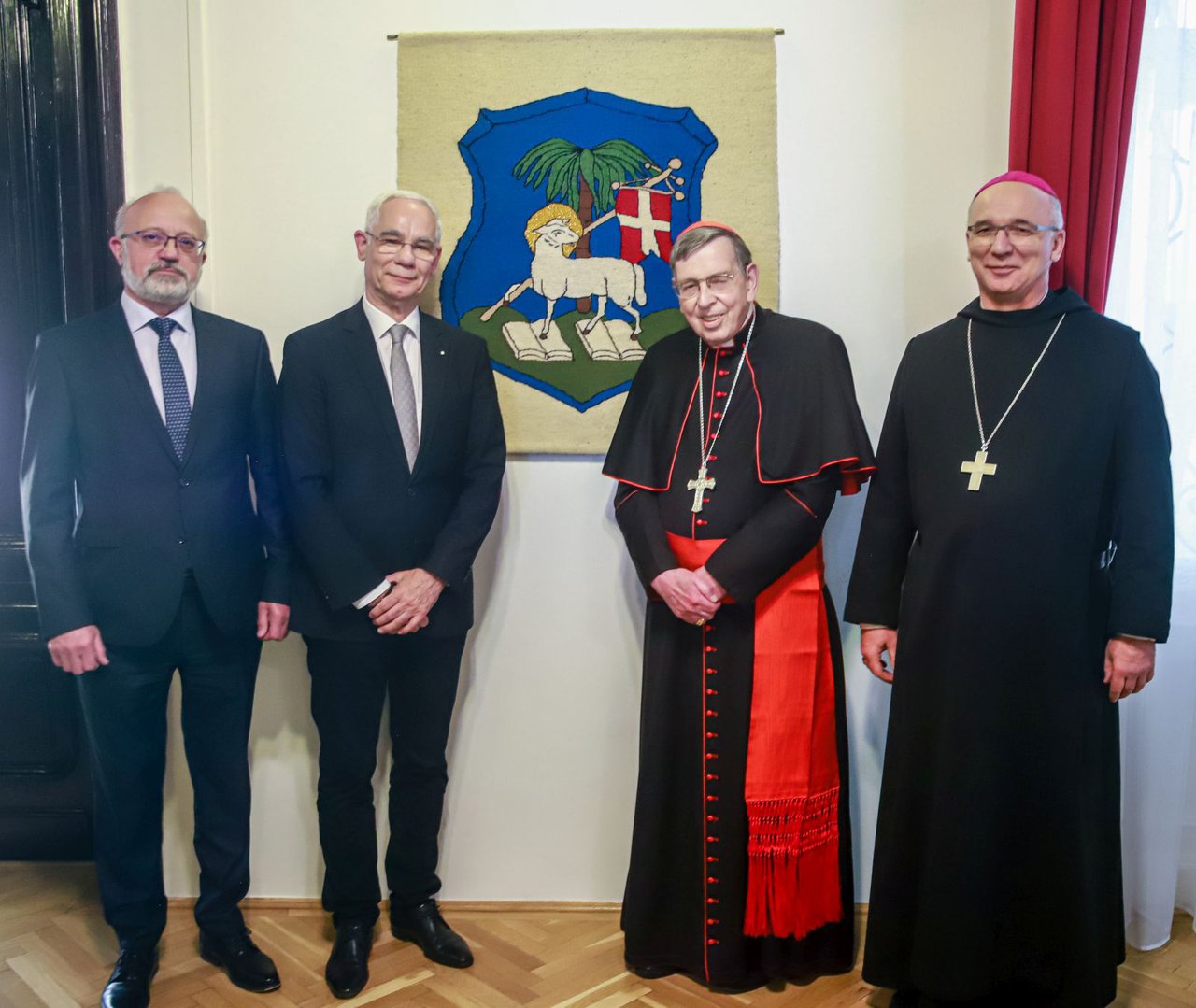Cardinal Kurt Koch, President of the Pontifical Council for the Promotion of Christian Unity met with Zoltán Balog, Ministerial President and János Molnár, Lay President of the Synod of the Reformed Church in Hungary during his visit in Hungary. The fraternal conversation took place in the Bishop’s Office on Wednesday.

According to press release of the Bishop’s Office, the presidents of the Synod gave an insight into the 450-year history and "confessional identity" of our church. They reported about initiatives in Hungary for the aid of persecuted Christians and the Church's ministry among refugees, as well.
Kurt Koch offered an overview about the current dialogue processes between the Holy See and the Protestant Churches in the world, including the World Communion of Reformed Churches. The discussion also addressed the issue of the solidarity among Christian denominations and the unity of the Church in Hungary and Europe.

Chief Elder János Molnár, Ministerial President Zoltán Balog, Cardinal Kurt Koch and Cirill T. Hortobágyi, OSB, Archabbot of the Hungarian Benedictine Monastery of Pannonhalma
According to the press release, social and ethical issues were also discussed that can generate divisive disagreements even within churches today, including their position on same-sex marriage. "A critical dialogue on these issues is urgently needed both within the Church and between churches, bearing in mind the authority of Scripture and the tradition of the Church,” reads in the report.
The Cardinal also expressed that deeper discussion on theologically relevant questions of the relationship between church and state would be of high relevance in the current ecumenical dialogue.
Cardinal Kurt Koch visited Hungary on the invitation of the Otto von Habsburg Foundation and gave an address at the conference jointy organized by the Foundation and the University of Public Service entitled Christianity and policy space in the 21st century, part of the conference series Ideological fundamentals of Europe.
"The recent discourse on the future of Europe cannot be without a dialogue on the fundamental values of the continent. It is therefore worth recalling the millennial Judeo-Christian tradition, but also taking into account how the ideas of the Enlightenment prevail and how the versatile phenomenon of modernization affects churches, denominations, political communities and European society as a whole. What does “Christian Europe” in today’s increasingly secular public life mean? Can it be a catch phrase in politics? What ideological, moral, and practical steps characterize the representatives of Christian Europe? How does the Holy See view the European debate on values? What are the similarities and differences in Christian politics in a modern, traditionally multicultural but fundamentally Protestant-majority welfare state, a Catholic-majority Central European country that has survived four decades of communist rule, and the homeland of laicism, France," reveals the actual questions at stake the conference announcement.